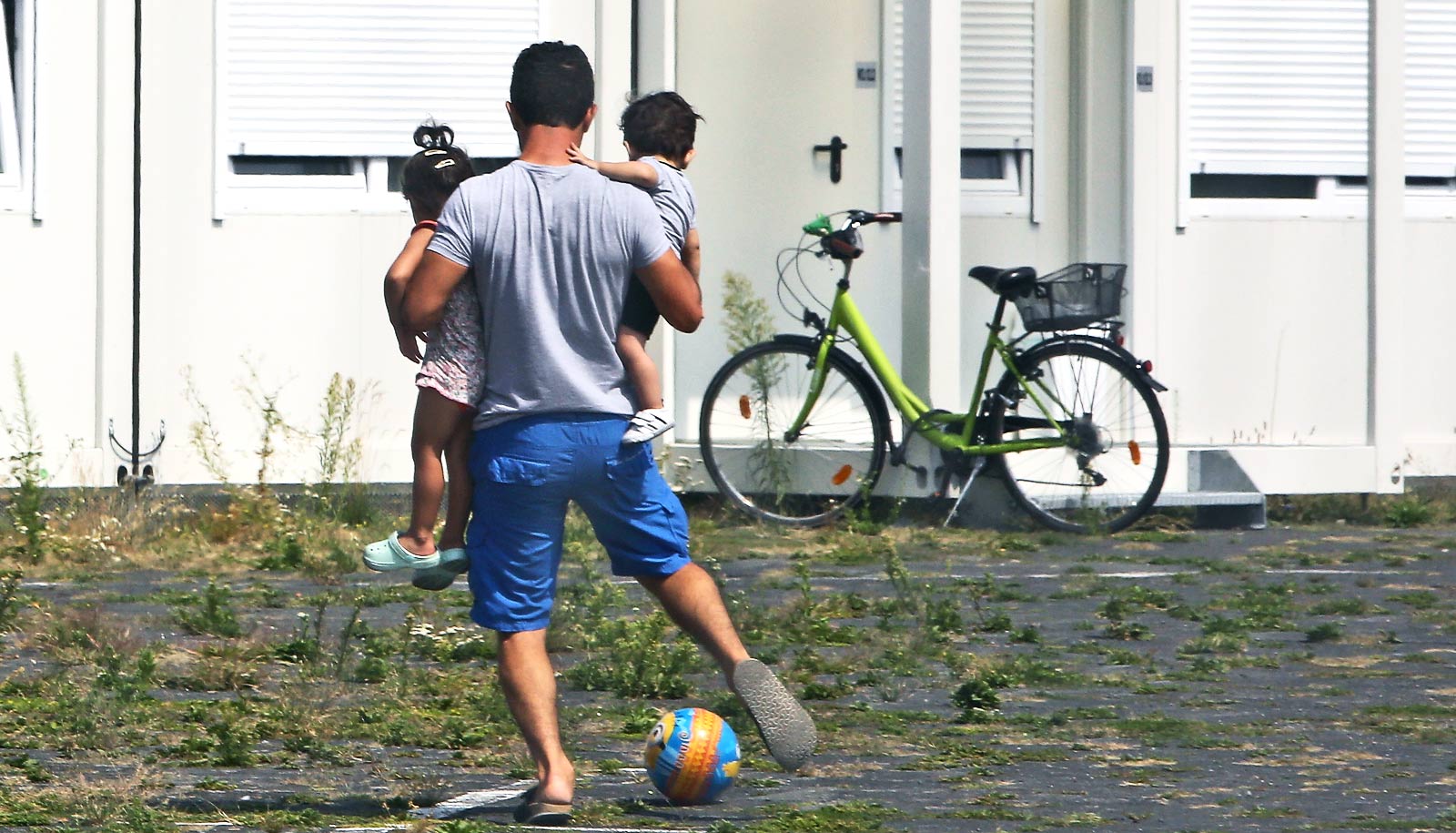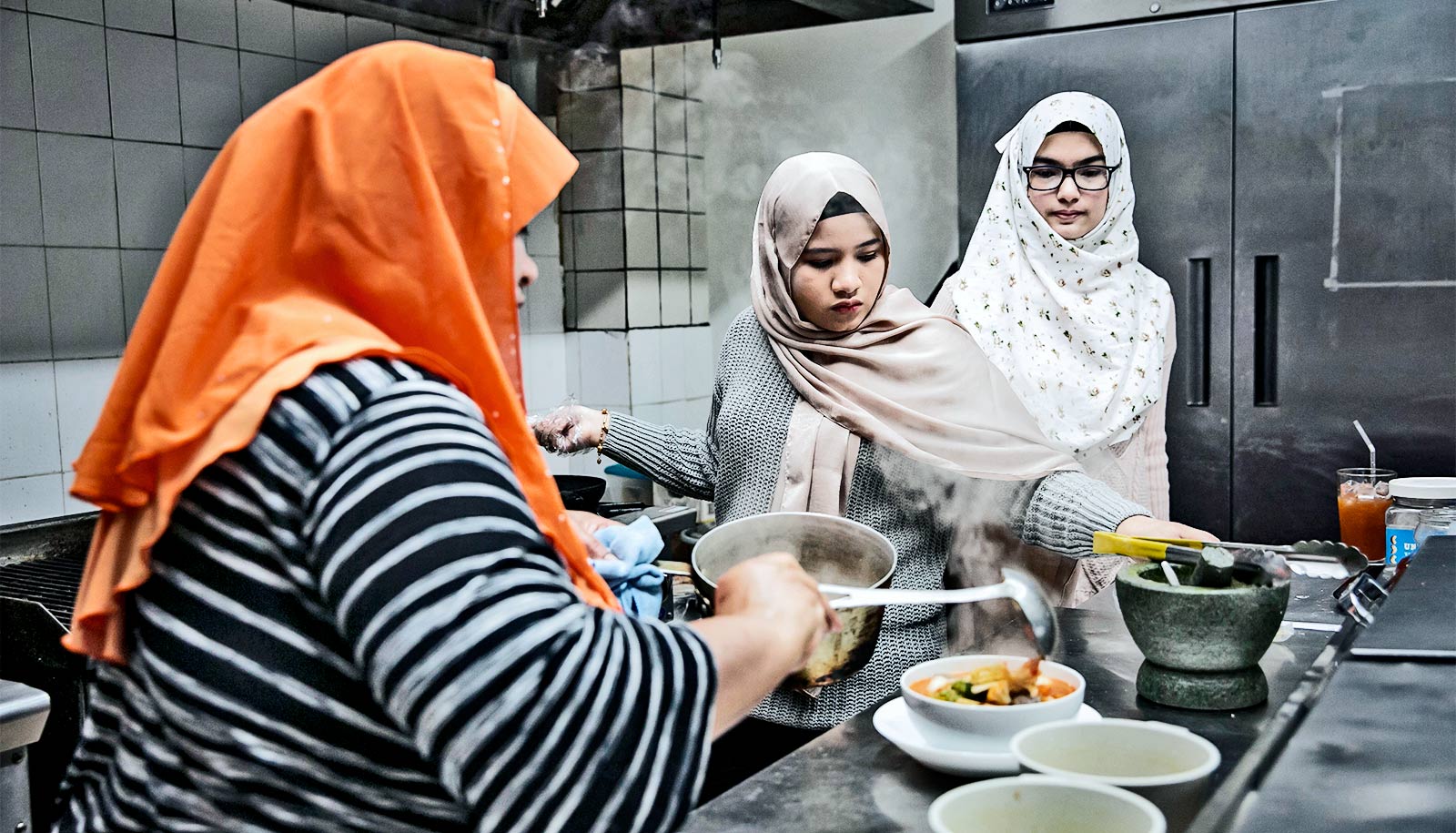The children of refugee parents who have PTSD have a significantly higher risk of contact with the psychiatric system, research in Denmark finds.
The researchers believe that there should be focus on the problem and that early measures and treatment options warrant development.
PTSD, or post-traumatic stress syndrome, is a delayed response to trauma and is often seen in refugees fleeing war and conflict.
In a large register study, researchers at the University of Copenhagen found that children with one or two parents who suffer from PTSD have a significantly higher risk of contact with the psychiatric system. The new research results appear in the journal Lancet Public Health.
“The results of the study indicate that there is a group of children and adolescents who are at increased risk of morbidity,” says coauthor Maj Back Nielsen of the public health department. “You often focus on the traumatized parents, but it is also important to pay attention to the consequences which the parents’ trauma may have for the whole family so that you do not disregard a group of children and young people who also need help.
“This does not just apply to children who have fled to Denmark and may themselves be traumatized by war. We also see an increased risk in children born in Denmark.”
PTSD can cause insomnia, nightmares, flashbacks, and memory and concentration difficulties. In the study, the researchers show that if both parents had PTSD, their children were 75% more likely to be in contact with the psychiatric system before they turned 18.
If it was just the mother, they had a 55% higher risk, while the number was 49% if only the father had PTSD—irrespective of whether the children themselves had fled to Denmark or were born here.
“We know that PTSD has a big effect on the daily ability to function. And having a PTSD diagnosis affects the dynamics of the whole family. It is important to emphasize that these are not bad parents, but due to their disorder, they are stressed and have some other conditions for being a parent and be there for their children.”
“It is an already vulnerable group which may be further stressed by uncertainties about temporary residency and other socio-economic conditions, such as finances,” says coauthor Marie Louise Nørredam, professor in the department of public health sciences. “We know from other research that social conditions are linked to diseases.”
The researchers analyzed data from refugees who came to Denmark in the period from January 1995 to December 2015 and have been granted a residence permit. In total, they analyzed data from 51,793 children of refugees and their contact with the psychiatric system.
Contact with the psychiatric system means that the child has had contact with the system at hospital level, on an outpatient basis, or as inpatient at a hospital. The researchers did not have access to information from general practitioners and practicing psychiatric therapists, for example. Therefore, they cannot rule out that the number of children who have been in contact with the psychiatric system is higher.
The psychiatric disorders most commonly seen in children of parents with PTSD were behavioral and emotional disorders, nervous disorders, and developmental disorders.
“If we want to ensure that these children have a proper future and opportunities in our community, we have to do something,” says Nørredam. “Both the number of children and parents may be underestimated. Thus, there is a need for greater focus on the problem and on how we may take precautions and secure an earlier detection and develop early measures and treatment options for the children and their families.”
Support for the study came from the Section of Immigrant Medicine, the department of infectious diseases, Copenhagen University Hospital Hvidovre, and took place in collaboration with the Competence Centre for Transcultural Psychiatry, Mental Health Services in the Capital Region, and the Child and Adolescent Psychiatric Centre, Glostrup.
Source: University of Copenhagen


